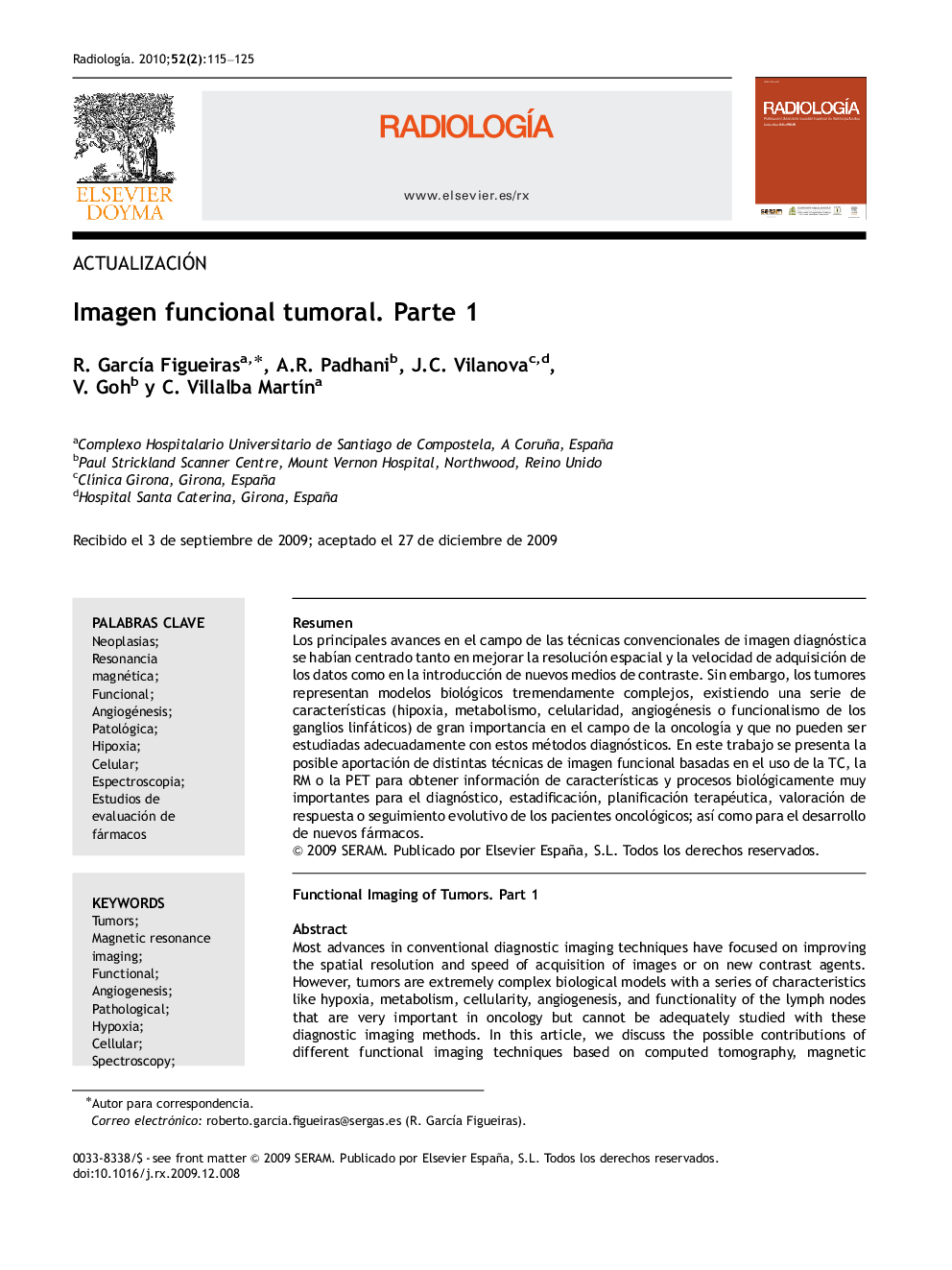| Article ID | Journal | Published Year | Pages | File Type |
|---|---|---|---|---|
| 4245387 | Radiología | 2010 | 11 Pages |
Abstract
Most advances in conventional diagnostic imaging techniques have focused on improving the spatial resolution and speed of acquisition of images or on new contrast agents. However, tumors are extremely complex biological models with a series of characteristics like hypoxia, metabolism, cellularity, angiogenesis, and functionality of the lymph nodes that are very important in oncology but cannot be adequately studied with these diagnostic imaging methods. In this article, we discuss the possible contributions of different functional imaging techniques based on computed tomography, magnetic resonance imaging, or positron emission tomography to obtain information about different biological processes and characteristics that are very important for diagnosing, staging, planning treatment, evaluating the response to treatment, and monitoring the evolution of cancer patients, as well as for the development of new drugs.
Keywords
Related Topics
Health Sciences
Medicine and Dentistry
Radiology and Imaging
Authors
R. GarcÃa Figueiras, A.R. Padhani, J.C. Vilanova, V. Goh, C. Villalba MartÃn,
